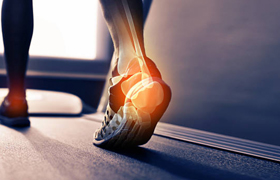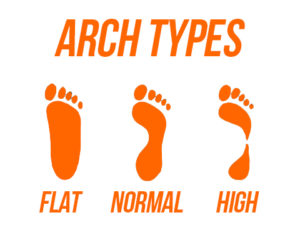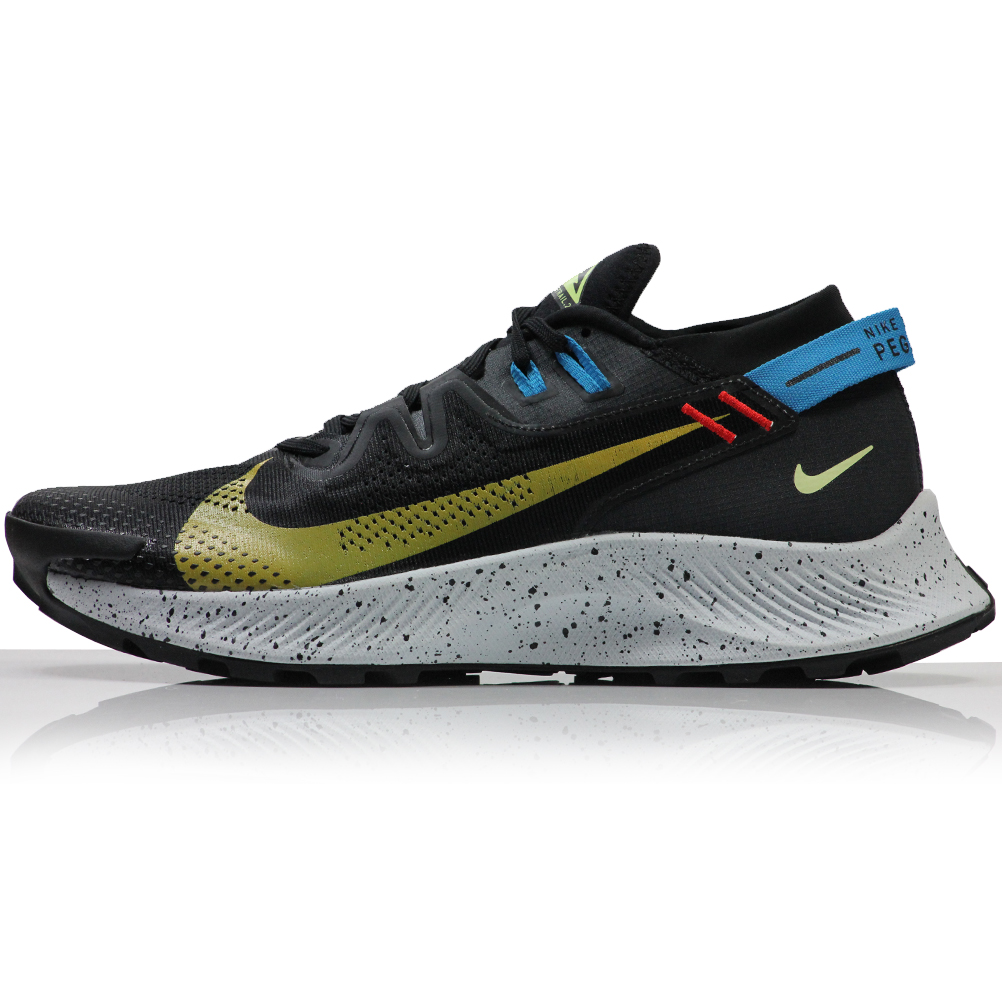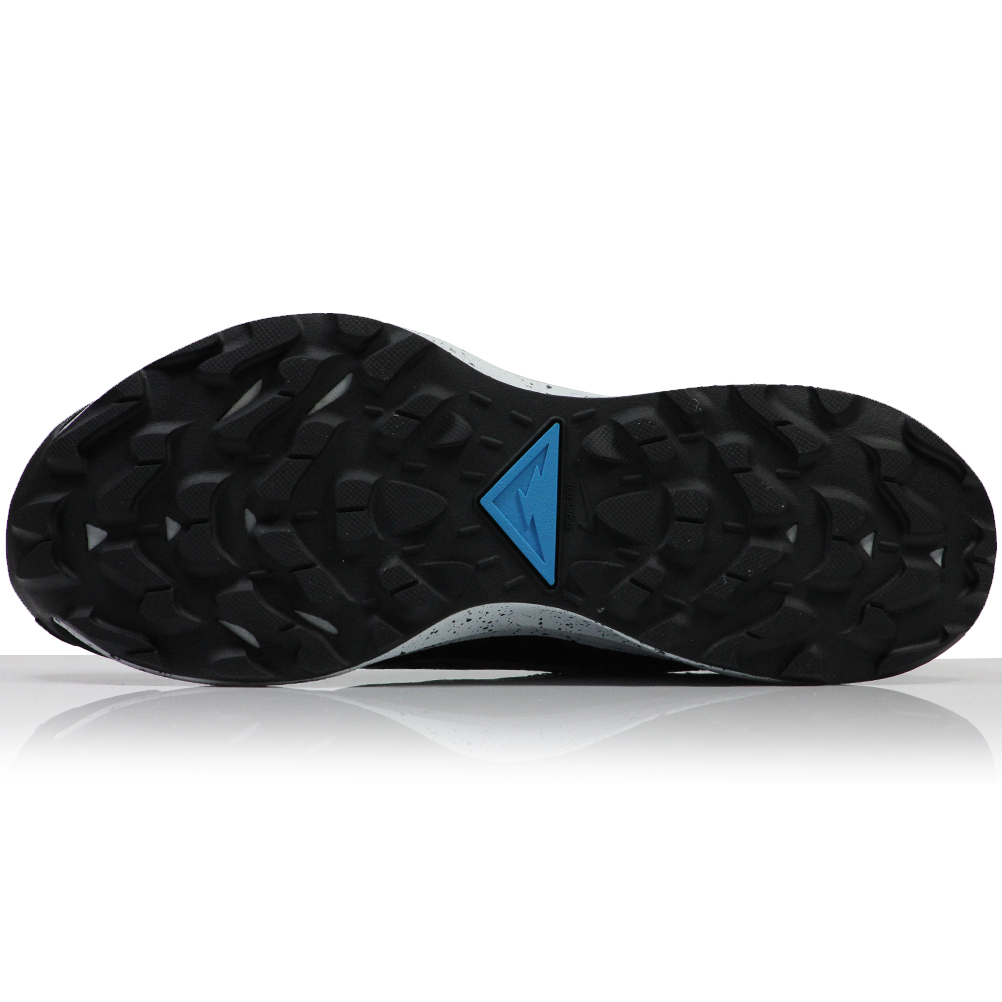Nike Pegasus Men’s Trail 2 Running Shoe – Black/Dark Sulfur/Off-Noir
Description
The Nike Pegasus Men’s Trail 2 Running Shoe has all the features of the Pegasus with extra grip added for off road running. React foam gives you cushioned responsiveness for a much smoother transition and the full-length design offers stability over different terrains. The outsole has a shockwave style pattern for better traction right through to the heel and toe for uphill or down.
Features
- Multidirectional Trail Traction The rubber outsole features a shockwave-like pattern for a fast, bike tire-inspired look. Nubs give you traction and a smooth ride between trails and the road. More traction at the heel and toe helps you stay secure when going uphill or downhill.
- Responsive Stability Nike React foam provides cushioned responsiveness for a smooth transition. Its full-length design gives your foot stability as you brave rocky terrain.
Additional information
| Colour | |
|---|---|
| Size |
Returns Info
SUBSIDISED TRACKED RETURNS SERVICE
If you intend to return any items, please use the Royal Mail Returns service to create a tracked label, then print this off and attach it to your parcel
Please access our ROYAL MAIL TRACKED RETURNS portal Click Here.
We provide subsidized tracked returns for £3 for up to 2 items. For more than 2 items, a fee of £6 will apply.
When sending your item back for a refund, the subsidised charge will be deducted from your refund.
When sending your item back for an exchange, the subsidised charge will be deducted from your payment card.
Please indicate whether you request an exchange or a refund using the provided Returns Form – these are packaged with every order, so please complete this and include it (or download The Running Outlet Returns Form PDF here).
Alternatively, if customers choose to return their order using an alternative return method, please return to the following address:
The Running Outlet
26 Burgate,
Canterbury,
Kent,
CT1 2HA,
UK
therunningoutlet.co.uk is not liable for returned items lost in transit when using the Royal Mail portal. Refunds will only be issued once the item has been successfully delivered to the store.
Size Guide
The following size chart is a guide to Nike clothing and footwear sizes with a comparison to European and US sizes.
Please note that the onus is on the customer to choose the correct size and that all size charts are a suggested guide to measurements based on information supplied from the manufacturer.
If you’re in between sizes: for a tight fitting, go for the smaller size OR for a looser fit, then go up a size.
Men’s Shoe Sizing
| UK | 7 | 7.5 | 8 | 8.5 | 9 | 9.5 | 10 | 10.5 | 11 | 11.5 | 12 | 13 |
| US | 8 | 8.5 | 9 | 9.5 | 10 | 10.5 | 11 | 11.5 | 12 | 12.5 | 13 | 14 |
| EU | 41 | 42 | 42.5 | 43 | 44 | 44.5 | 45 | 45.5 | 46 | 47 | 47.5 | 48.5 |
Women’s Shoe Sizing
| UK | 4 | 4.5 | 5 | 5.5 | 6 | 6.5 | 7 | 7.5 | 8 | 8.5 | 9 | 9.5 |
| US | 6.5 | 7 | 7.5 | 8 | 8.5 | 9 | 9.5 | 10 | 10.5 | 11 | 11.5 | 12 |
| EU | 37.5 | 38 | 38.5 | 39 | 40 | 40.5 | 41 | 42 | 42.5 | 43 | 44 | 44.5 |
Junior Shoe Sizing (including Spikes)
| UK | 1 | 1.5 | 2 | 2.5 | 3 | 3.5 | 4 | 4.5 | 5 | 5.5 | 6 | 6.5 |
| US | 1.5 | 2 | 2.5 | 3 | 3.5 | 4 | 4.5 | 5 | 5.5 | 6 | 6.5 | 7 |
| EU | 33 | 33.5 | 34 | 35 | 35.5 | 36 | 36.5 | 37.5 | 38 | 38.5 | 39 | 40 |
Men’s Shirts and Tops Sizing
| Sizes | S | M | L | XL |
| Chest (in) | 35-37.5″ | 37.5-41″ | 41-44″ | 44-48.5″ |
| Waist (in) | 29-32″ | 32-35″ | 35-38″ | 38-43″ |
| Hip (in) | 35-37.5″ | 37.5-41″ | 41-44″ | 44-47″ |
Men’s Bottoms Sizing
| Sizes | S | M | L | XL |
| Waist (in) | 29-32″ | 32-35″ | 35-38″ | 38-43″ |
| Hip (in) | 35-37.5″ | 37.5-41″ | 41-44″ | 44-47″ |
| Inseam (in) | 32.25 | 32.5 | 32.75 | 33 |
Women’s Shirts and Tops Sizing
| Sizes | XS | S | M | L |
| Chest (in) | 29.5-32.5″ | 32.5-35.5″ | 35.5-38″ | 38-41″ |
| Waist (in) | 23.5-26″ | 26-29″ | 29-31.5″ | 31.5-34.5″ |
| Hip (in) | 33-35.5″ | 35.5-38.5″ | 38.5-41″ | 41-44″ |
Women’s Bottoms Sizing
| Sizes | XS | S | M | L |
| Waist (in) | 23.5-26″ | 26-29″ | 29-31.5″ | 31.5-34.5″ |
| Hip (in) | 33-35.5″ | 35.5-38.5″ | 38.5-41″ | 41-44″ |
| Inseam (in) | 31.2″ | 31.2″ | 31.5″ | 31.5″ |
Buying Guide
Picking the right shoe for you.
Consider coming into a store and doing a video gait analysis. Gait analysis monitors your body’s movement and your feet (sports biomechanics) whilst running. It’s commonly used to help athletes run more efficiently and to identify movement related problems for people with injuries who are seeking new running shoes.

During gait analysis you will be asked to walk and run on our in-store treadmill whilst your movements are recorded using the latest Daftfish software. A slow-motion, detailed analysis will show and explain your biomechanics, specifically looking at pronation, the inward-turning movement that occurs when your foot touches the ground. During walking and running this acts as cushioning for the body.
Everyone’s gait is slightly different, but there are four main types of running styles and pronation:
- Neutral Pronation
- Over Pronation
- Under Pronation, also known as Supination
- Forefoot runners
It’s very important to know your running gait so that we can advise and fit the correct shoes according to your own individual requirements.
Can’t get into store? Try a wet foot test
Step onto a piece of heavy duty paper, card or even a bathroom tile and look at the footprint you leave behind. Seeing how much of the sole is visible in the footprint will help you determine the type of arch you have and which category of shoe you will need to buy.

Flat: A flat footprint indicates that your aches are flat and therefore will need support. As your foot hits the ground your arch collapses in order to absorb the impact. If your arch collapses excessively, this is called overpronation and can lead to the ankle rolling excessively which over time causes some runners to develop pain. Overpronation in the arch can affect the whole body and cause discomfort in the heel, ankles, achilles tendons, shins, outside knee, outer hip, as well as the arches.
Normal: A normal footprint would indicate that the arches are high and therefore offer the neural support a runner needs. A neutral shoe makes up roughly 80% of available running shoes and have the same level of cushioning in the heel and the forefoot making it suitable for a large section of runners.
High: A high arch would indicate supination, the opposite to overpronation. The runner’s arch does not collapse very much at all which can lead to less shock absorption. This will concentrate the force of the impact toward the outside area of the forefoot leading to some runners that supinate experiencing foot pain or even stress fractures as a result. Runners that supinate may want to consider a highly cushioned neutral running shoe. The greater level of cushioning in these shoes can help absorb more of the shock from impact.
Size is important
Seasoned runner – if it’s not broken why change?
If you have had a good experience with your old shoes and have stayed injury free then you might, understandably, be reluctant to change brand or model. Be sure to look at the latest version of your current shoe as most popular styles tend to be slightly tweaked rather than completely redesigned when updated. The fit and feel is always very similar if not exactly the same. It’s evolution rather than revolution!
Wear and Tear
Comfort is KEY!
You must be logged in to post a review.

EMAIL NEWSLETTER
FOLLOW US ON
CONTACT US
CUSTOMER SERVICES
INFORMATION
MY ACCOUNT
All major debit & credit cards accepted







Reviews
There are no reviews yet.